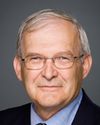One of the programs mentioned is Lest We Forget. The kids haven't forgotten; they just haven't learned it to start with. They can't forget something they don't know about. We're doing a poor job of teaching the kids our history. I think we do a very poor job of conveying, in the case of World War I, the reality of what Canadians had to deal with.
It's a little-known fact that the enrolment rate of non-British subjects, if you will, is almost identical between French Canadians and non-French Canadians who are not British. So there shouldn't be any finger-pointing about enrolment rates. In other words, if you weren't British or if you weren't born in Britain or if you weren't the child of people born in Britain, your enrolment rate was much less than anyone else's, and it didn't matter what your mother tongue was. That's one of those things I love to jump on when I see that finger-pointing, because it's not right.
In fact, the head of recruiting, the head of the militia was Sam Hughes. It's well documented. You can look at Tim Cook's book, The Madman and the Butcher. Minister Hughes was by today's standards a rabid bigot. I think it's a miracle that anyone in the province of Quebec who was French speaking ever joined the Canadian Expeditionary Force because this man made it next to impossible for those people to want to participate in this.
The end result of the war, of course, with our signing of the Treaty of Versailles and the Statute of Westminster, almost hearkens back to what Robert Bourassa sought when he was a member of the Laurier cabinet. He gave up in disgust because the cabinet was too concerned about being British rather than Canadian. The end result of the First World War was that of Canadians thinking of themselves as Canadians first. We need to help the kids to understand that, right across the country.



